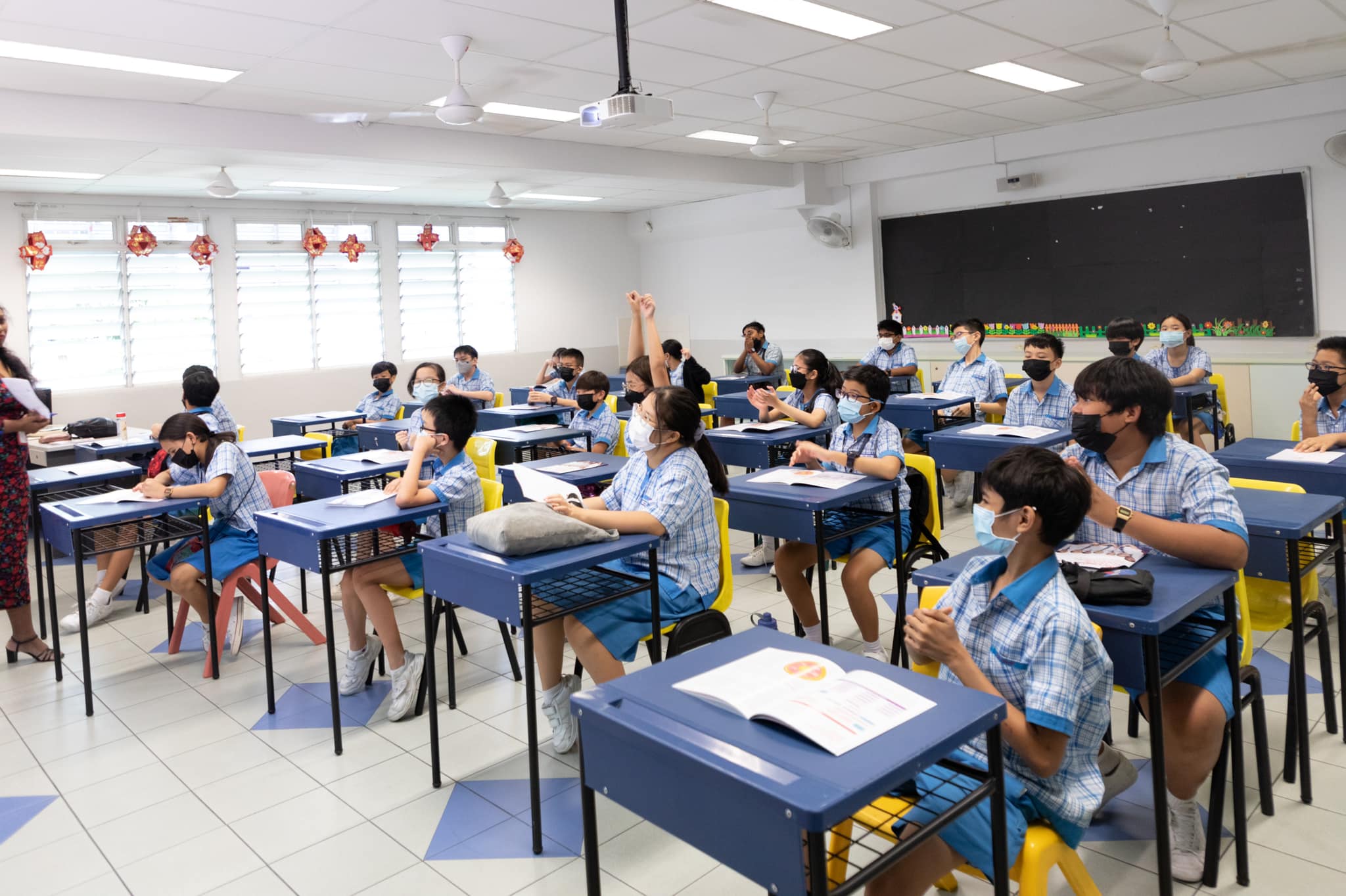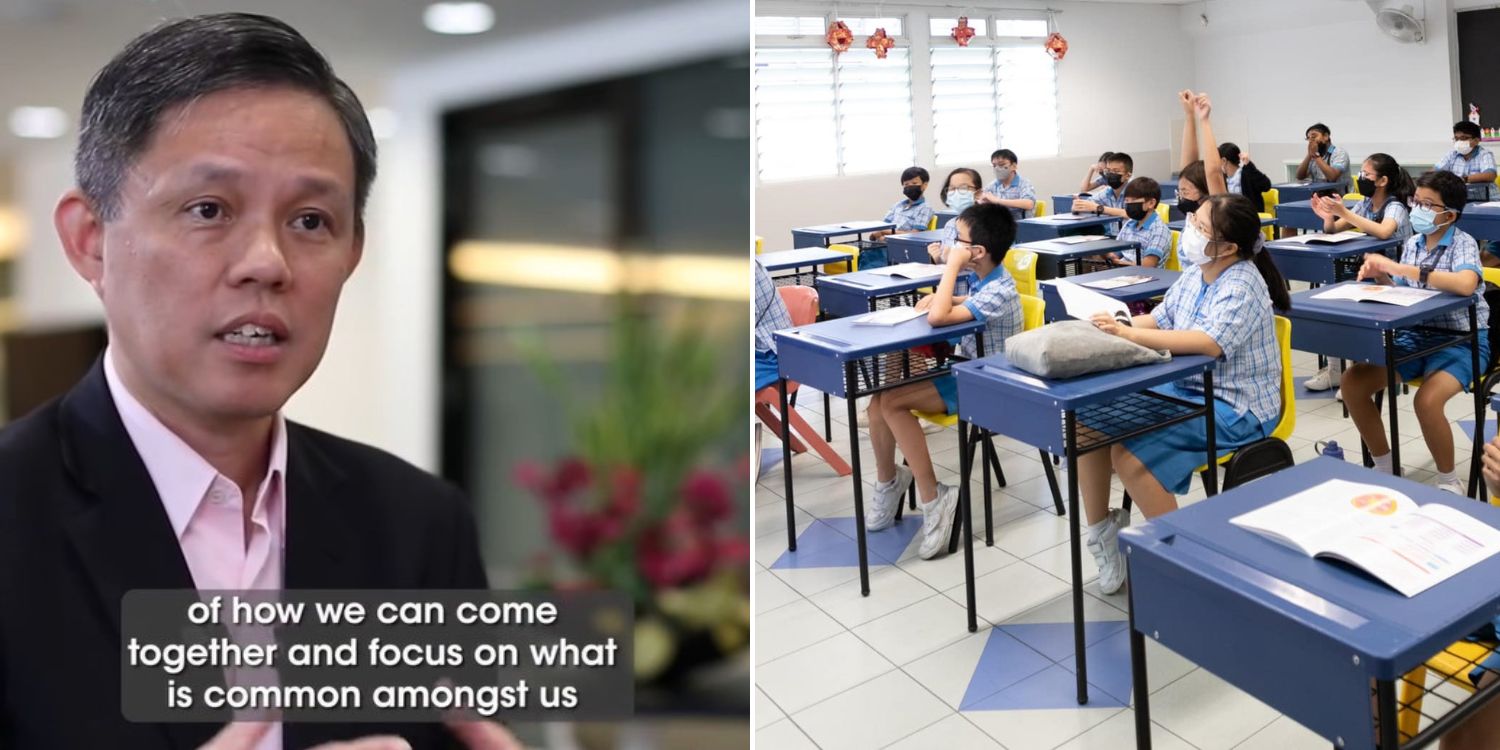Chan Chun Sing says lessons on Israel-Hamas conflict help students appreciate diverse views
Lessons in Singapore schools that discussed the Israel-Hamas conflict have elicited a stir, with some parents criticising the lesson content and how their children were taught about the conflict.
While the Ministry of Education (MOE) has issued a statement responding to those concerns, Education Minister Chan Chan Sing has further explained why the topic is discussed in schools.
He said the lessons represent a safe environment for students to understand world issues and find out how we can respond with “a sense of solidarity”.

Source: Chan Chun Sing on Facebook
Many S’poreans affected by Israel-Hamas conflict: Chan Chun Sing
Mr Chan was speaking during an interview with SPH Media and Medicorp on Sunday (25 Feb).
In the session, he was asked what MOE aims for when planning Character and Citizenship Education (CCE) lessons on topics as difficult as the Israel-Hamas conflict.
Describing it as a “complex conflict” that may go back centuries, Mr Chan said many Singaporeans are affected and feel deeply for the victims.
This includes not just the Malay-Muslim and Jewish communities, he said, adding that many young people have several questions about it.

A group gathering in support of Palestine on 2 Feb.
Chan Chun Sing lists 4 things that Israel-Hamas lessons aim to achieve
As such, CCE lessons on Israel-Hamas aim to achieve four things for students, Mr Chan said:
- to understand their own emotions and empathise with others
- to reflect how we can safeguard our cohesion and harmony in a multiracial society
- to learn to verify information sources before sharing them responsibly
- to appreciate the diversity of views and conduct conversations sensitively and respectfully.
These are “for the sake of “our social fabric and our children’s development”, he added.
Students learn how to empathise with the feelings of others
In reference to points (1) and (3), Mr Chan said people have gotten into heated conversations over the conflict.
Strong emotions have also been stirred up by unverified information, images, and misinformation over social media, he added.
During CCE lessons, younger students can focus on how to deal with their emotions and “empathise with the feelings of others, including those who do not share their same views”, the minister said.
He hopes the discussions will help them “focus their energies on constructive and respectful dialogues” and “give them a sense of agency to take positive actions”.
Older students will be encouraged to verify information, read from diverse sources and appreciate the diversity of views respectfully before coming to their own conclusions.

Source: Chan Chun Sing on Facebook
CCE ‘not a history lesson’
One group of parents had claimed online that the information the students got was “lacking in accurate narration of historical events”.
Mr Chan noted that CCE “is not intended to be a history lesson” and not an exercise to apportion blame.
It’s not meant to cast one side as good and another side as evil either, though some might have come to that conclusion, he said.
Rather, it’s trying to promote mutual understanding and social harmony, he added, saying:
The purpose of education is not to spread anger and hatred. It is to inculcate knowledge, understanding and empathy for all human beings, regardless of race or creed.
Education must help preserve social cohesion
To that end, education must contribute towards the building of a common future with shared values, Mr Chan said, touching upon point (2).
Singaporeans deeply appreciate our diverse backgrounds but must not let ourselves be divided because of our differences, he added.
Thus, we must find ways to preserve our hard-earned racial and religious harmony by working hard to preserve our cohesion, mutual tolerance and acceptance, he noted, adding:
We have to be very careful not to let the seeds of hatred and distrust be planted in our younger generations.

S’poreans can come together based on commonalities
To do that, MOE, principals and teachers have agreed that they share a common objective — to formulate a way to respond to issues like the Israel-Hamas conflict with “a sense of solidarity”.
Building upon point (4), Mr Chan said Singaporeans can come together based on what we have in common “rather than to let our differences divide us”.
Instead, we should appreciate the diversity of perspectives out there due to having people from different racial and religious backgrounds, as well as different ages, he added.
If one appreciates a diversity of perspectives, we can conduct conversations respectfully with one another as every issue has a diversity of perspectives, not just the Israel-Hamas conflict.
A safe environment for students
Ultimately, CCE lessons create a safe environment for students to achieve those four things — a point MOE emphasised in its press release on 23 Feb.
In discussing the Israel-Hamas conflict, the authorities are “mentally prepared” that there will be issues that will elicit certain reactions from people, Mr Chan said.
However, as our children are already being “bombarded” with information and challenges, there will be “implications” if we delay discussing this with them any longer, he added.
Read the full interview with Mr Chan here.
Have news you must share? Get in touch with us via email at news@mustsharenews.com.
Featured image adapted from Chan Chun Sing on Facebook and Facebook.

Drop us your email so you won't miss the latest news.





